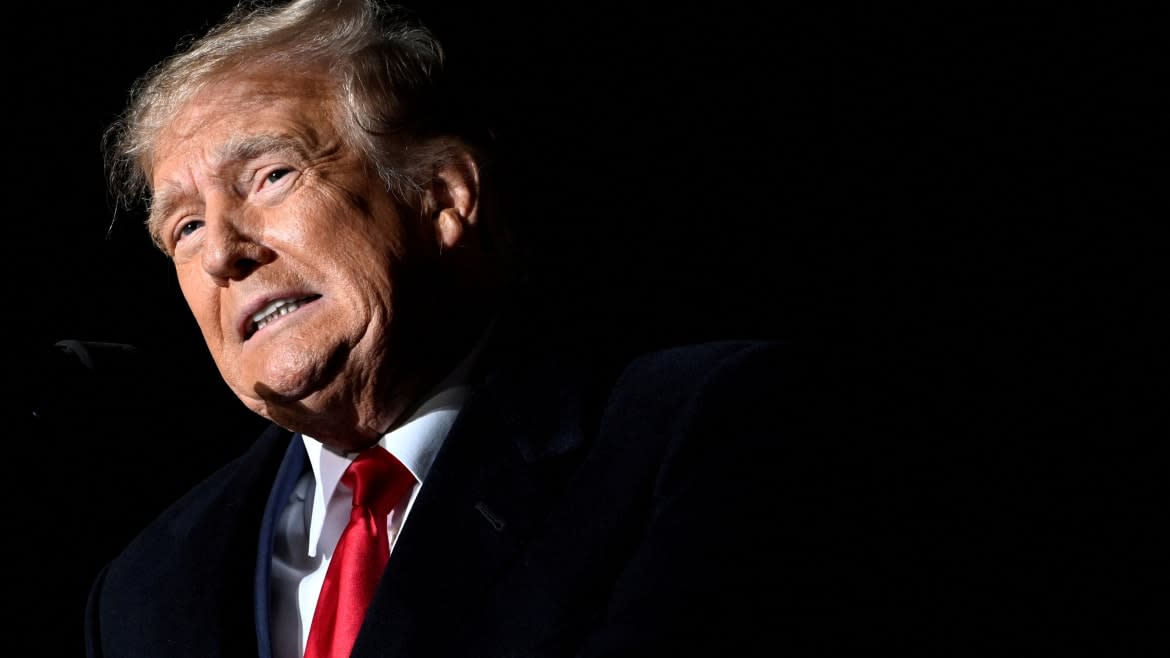Donald Trump Can’t Hide From Jan. 6 Committee’s Criminal Referral

- Oops!Something went wrong.Please try again later.
- Oops!Something went wrong.Please try again later.
The January 6 Committee delivered a one-two punch to Donald Trump with a concise summary hearing in support of historic criminal referrals of the former president to the Justice Department for potential criminal prosecution.
The referrals name Trump and John Eastman – who authored a memo setting forth illegal theories by which then-Vice President Mike Pence could decide the 2020 election – and set forth four different charges for DOJ to consider: Obstruction of an Official Proceeding (18 U.S.C. 1512(c); Conspiracy to Defraud the United States (18 U.S.C. 371); Conspiracy to Submit False Statements (18 U.S. C. 1001) and Insurrection (18 U.S.C. 2383).
While Congressional referrals to DOJ carry no legal leverage and do not require DOJ to act, these are not your run-of-the mill criminal referrals.
DOJ sometimes may take Congressional inquiries with a slight grain of salt given that they arise from a political institution with accompanying political motives, but these are extraordinarily different. For starters, even the Committee’s Executive Summary – a robust 150 pages-plus document complete with dense footnotes – suggest that the referrals were written for prosecutors. This is apparent not only in the volume of evidence put forth but also in the shaping of the legal theories for prosecution and even the rebuttal of anticipated legal defenses.
The summary explicitly states that most referrals take place without knowing whether criminal investigations and prosecutions are underway but these take place with the knowledge that DOJ and Fulton County Georgia already have commenced criminal investigations into the efforts to interfere with the 2020 election. Indeed this difference is critically significant for several reasons.
Trump’s Special Master Suit Is Dead—Now the Real Case Begins
First, the summary – and likely the report – takes full advantage of the fact that court cases have already opined on some of the evidence in the case and offered DOJ a chance to rebut defense arguments. For example, one of the defense points likely to be raised if there is a prosecution on Obstruction of an Official proceeding is that the January 6 certification of the electoral college count was somehow not an official proceeding. In the some 275 cases charging defendants with this violation, numerous defense lawyers have been trying to make this argument but thus far without success.
Similarly, the Committee also relies on the fact that a judge in a civil case has already made finding that Trump and Eastman had likely committed crimes as well as a judge rejecting the claim that Trump’s Ellipse speech was completely protected under the First Amendment. By setting forth the rebuttals to these potential legal defenses the committee is addressing the very same analyses that DOJ would have to consider in reaching a charging decision.
Second, the summary hints at the massive amount of evidence already compiled – including one thousand witness interviews – that will likely be set forth in the full report and its appendices. In short, the Committee did a comprehensive job of investigation, the likes of which DOJ has not yet even begun to rival. This kind of work will allow DOJ the benefit of previewing witness testimony and knowing which witnesses may be the most important and where to push further with them to develop further evidence.
Lastly, the summary also is deferential to DOJ. It points out that prosecutors have access to far more effective tools of investigation and leave open the possibility of further charges and targets that prosecutors may develop with those tools.
Why SCOTUS Could Be About to Unleash Frankenstein’s Monster
This is not an admonition being delivered to DOJ by politicians to look into a political opponent. Rather, it is a meticulously crafted report meant to aid prosecutors as well as to inform the American people.
The summary even provides what you might call a little pep talk for DOJ. The report points out that in the recently successful prosecution of the Oathkeepers, a similar conspiracy charge – Seditious Conspiracy – was successfully prosecuted. DOJ obviously is aware of this victory but their late start and slower pace suggests that maybe a little encouragement couldn’t hurt.
Get the Daily Beast's biggest scoops and scandals delivered right to your inbox. Sign up now.
Stay informed and gain unlimited access to the Daily Beast's unmatched reporting. Subscribe now.

